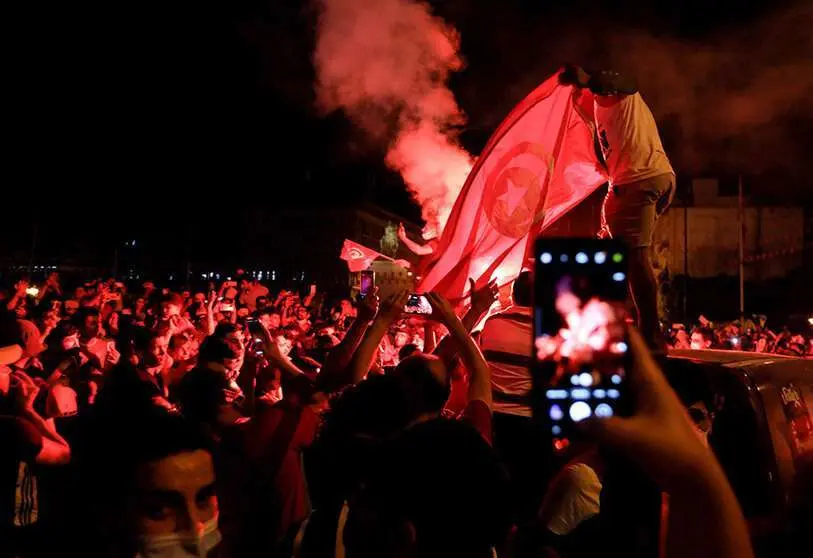Tunisia against the Islamists

The Tunisian president's coup de rudder aims to resolve the years-long struggle by Islamists to seize power since the fall of dictator Ben Ali in the Jasmine Revolution in 2011, which was the origin of the so-called Arab Springs with tragic results in some countries such as Syria, Libya and Yemen.
Impotence in the face of the abuse of power by a totalitarian administration and despair at losing his family's livelihood led to the suicide of street vendor Mohammed Bouazizi. He set himself on fire after his attempt to have his car confiscated by the police returned to him failed. It was the straw that unleashed an unstoppable wave of protests against repression, corruption and unemployment that led to the overthrow of President Zine El Abidine Ben Ali.

Years later, the Tunisian state is insisting on repatriating the large amount of money taken by the dictator, although the end of his regime was more than enough for a society that longed to embark on the road to democracy and freedom. As in other nearby countries such as Egypt, the fall of the tyrant brought as a result of the elections a narrow victory for an Islamist party such as Ennahda that sought to impose Sharia, Islamic law, in the new constitution. The refusal of a large part of Tunisian society, secular in spirit and of average cultural level, defender of women's rights, and the harsh protest demonstrations in 2013 for the assassination of the secular opposition leader Chokri Belaid forced the Islamist party Ennahda, backed by the Muslim Brotherhood, to resign from the government and be replaced by a so-called technical executive that was able to steer the situation in such a way that in January 2014 a new constitution was approved in parliament, agreed by consensus among all political, economic and social sectors, with guarantees for freedoms and minority rights and with the division of power between the president of the Republic and the prime minister.
Tunisia had become a global benchmark for consensus and dialogue between the different political parties, including with the Islamists of Ennahda in the coalition government during the presidency of Beji Caid Essebsi. However, the challenge of overcoming the severe economic and employment crisis was not to be the biggest obstacle to Tunisians' immediate future. In March 2015, Daesh terrorists destabilised Tunisian life and economy by attacking the Bardo Museum with 22 people killed, shortly afterwards a terrorist attack killed 38 people in Sousse, a coastal resort, and at the end of the year a suicide bombing claimed the lives of 12 soldiers. Terrorists had destroyed the tourism sector, which is essential to the Mediterranean country's economy, and called into question its ability to ensure security.

Its goal of preventing a moderate Islam living side by side with a democratic country, with freedoms, with democracy, with rights for women and minorities was becoming a reality as the collapse of the economy was looming over the lives of Tunisians and as the trade deficit increased and the currency collapsed. In addition, its border with Libya was being breached by various radical militias recruiting young people for terrorist groups.

The population's enormous discontent and frustration was reflected in the October 2019 presidential elections with the election of constitutional law professor Kaid Saied, an independent, with more than 70 per cent of the vote. His presidential mandate has been marked by the conspiracies of the Islamists of Ennahda, led by the president of the parliament, Rached Ghannouchi, who is directly linked to the Muslim Brotherhood. The dire situation in Tunisia, aggravated by the coronavirus pandemic, has prompted President Saied, supported by the vast majority of Tunisians in the streets, to put an end to the Islamist threat by dismissing the government and freezing the parliament's action.
Article previously published in ABC and ABC.es









